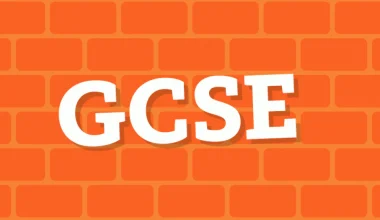Are you considering going back and reviewing your GCSEs, possibly after you’ve left school? The interesting possibility of retaking your GCSEs at any age is what makes possible the question; ‘Can you retake GCSEs at any age?’
If you’re looking to go back to school or to upgrade your qualifications in the years to come, the response that’ll spur you is yes! This is simply because learning is a lifelong process that extends beyond the younger generation.
And, to answer this frequently asked topic, ‘Can you retake GCSE whenever you want?’ Let’s explore its interesting possibilities!
Table of contents
Can you retake GCSE at any age?
You can retake your GCSEs at any age. There are various educational institutions, both traditional schools and adult education centers, that offer GCSE courses and exams for individuals of all ages.
If you’re looking to improve your grades, acquire qualifications for a new career path, or simply pursue further education, there are opportunities available for retaking GCSEs regardless of your age.
The specific process and eligibility criteria may vary depending on your location and the educational institutions in your area, so it’s advisable to research and contact relevant institutions for more information.
Also read: How To Prepare Properly For A-Levels After GCSEs
How to retake GCSEs as an adult
Retaking GCSEs as an adult can be a significant step in your educational journey, whether you’re looking to improve your qualifications, pursue a new career path, or fulfill personal goals. Here’s how you can go about it:
- Determine Your Goals: Before embarking on this journey, it’s essential to clarify your objectives. Are you retaking GCSEs to improve your grades, qualify for a specific job or course, or simply enhance your knowledge? Identifying your goals will help you choose the right subjects and approach.
- Research Exam Boards and Subjects: GCSE exams are offered by several exam boards, such as AQA, Edexcel, and OCR. Research the specific subjects and exam boards relevant to your goals. Ensure that the subjects you choose align with your career or educational aspirations.
- Find a Suitable Educational Institution: Adult education centers, colleges, and online platforms often offer GCSE courses for adults. Research local institutions or online programs that offer the subjects you need to retake. Consider factors like location, cost, course duration, and flexibility.
- Check Entry Requirements: Different educational institutions may have specific entry requirements. These can include prior qualifications, assessments, or interviews. Ensure you meet these requirements before applying.
- Enroll in a Course: Once you’ve found a suitable institution, enroll in the GCSE courses that align with your goals. These courses are designed to prepare you for the exams. You may have options for full-time or part-time study, depending on your schedule.
- Create a Study Plan: Developing a structured study plan is crucial. Allocate dedicated time for studying each subject, set achievable goals, and consider using study aids like textbooks, online resources, and practice papers. Be consistent in your study routine.
- Seek Support and Guidance: Don’t hesitate to seek help from teachers, tutors, or classmates if you encounter challenges with specific subjects. Educational institutions often provide support services to assist adult learners.
- Understand the Exam Format: Familiarize yourself with the format of GCSE exams. This includes the types of questions, duration of each exam, and any coursework or practical assessments. Knowing what to expect can reduce exam anxiety.
- Register for Exams: Once you feel prepared, register for the GCSE exams. Your educational institution should guide you through the registration process, including exam dates and fees. Ensure you meet the registration deadlines.
- Exam Preparation: In the weeks leading up to the exams, focus on revision and practice tests. Review past papers, manage your time effectively during exams, and maintain a healthy lifestyle to reduce stress.
- Receive Your Results: Once the exams are over, you’ll receive your GCSE results. Celebrate your achievements, and if you didn’t achieve your desired grades, consider your next steps, whether it’s retaking specific subjects or pursuing alternative pathways.
- Consider Next Steps: Depending on your goals, you may need to consider further education, job applications, or career advancement opportunities. Your improved GCSE results can open doors to new possibilities.
Retaking GCSEs as an adult requires dedication, commitment, and careful planning. Remember that it’s never too late to pursue your educational goals, and with the right preparation and support, you can achieve the results you desire.
Also read: How to Sit For GCSE Exams Privately: The Extensive Guide
Why you should retake your GCSE later in life
Retaking your GCSEs later in life can offer a range of compelling benefits and opportunities. Here are some reasons why you might consider retaking your GCSEs as an adult:
Career Advancement:
Many job opportunities require specific GCSE qualifications as a minimum requirement. By retaking and improving your GCSE grades, you can enhance your eligibility for better job prospects and career advancement.
Entry into Further Education:
If you’re considering pursuing higher education or specific vocational courses, retaking your GCSEs can be essential. Universities and colleges often require certain GCSE qualifications for admission, and improving your grades can increase your chances of acceptance.
Personal Fulfillment:
Education is a lifelong journey, and the pursuit of knowledge can be personally fulfilling. Retaking your GCSEs allows you to continue your learning journey, expand your horizons, and gain a sense of accomplishment.
Also read: Minimum Age to Take GCSE: Can You Take Your GCSEs Early?
Skill Enhancement:
GCSE subjects cover a wide range of skills, from mathematics to languages to sciences. Retaking these subjects can help you acquire or strengthen valuable skills that are relevant to your personal or professional interests.
Confidence Boost:
Achieving better GCSE results later in life can boost your self-confidence and self-esteem. It demonstrates that you have the determination and capability to overcome challenges and achieve your goals.
Career Change:
If you’re considering a career change, retaking your GCSEs can be a strategic move. It equips you with the qualifications needed for a new career path and provides a solid foundation for further training or education.
Also read: How Many GCSEs Do You Need For University? | 2024
Meeting Personal Goals:
Retaking your GCSEs can help you meet personal goals you may have set for yourself earlier in life but were unable to achieve at the time. Whether it’s to pursue a childhood dream or fulfill a long-held aspiration, GCSE retakes can be a pathway to realizing your ambitions.
Adapting to Changing Times:
The world is constantly evolving, and education plays a crucial role in keeping up with these changes. Retaking your GCSEs allows you to update your knowledge and skills, ensuring you remain relevant in today’s rapidly changing job market.
Improved Communication and Critical Thinking:
GCSE courses often emphasize communication, critical thinking, and problem-solving skills. These skills are valuable not only in academic settings but also in everyday life and various professions.
Also read: Do Universities Look at Your GCSE and A Level Attendance?
Setting an Example:
Retaking your GCSEs later in life can set a positive example for others, including your children or younger peers. It reinforces the idea that learning is a lifelong endeavor and that it’s never too late to pursue education and personal growth.
Can retaking the GCSE improve career prospects?
Yes, retaking GCSEs can significantly improve your career prospects in several ways:
Meeting Job Requirements:
Many employers require specific GCSE qualifications as a minimum requirement for certain job positions. By retaking and improving your GCSE grades, you become eligible for a broader range of job opportunities.
Qualifications for Career Advancement:
Some career paths have clear progression routes that involve acquiring additional qualifications. Improved GCSE results can be a stepping stone to higher-level courses or certifications required for career advancement.
Also read: Is Math A Level Hard: How Hard is A Level Maths Compared to GCSE Maths?
Competitive Advantage:
In a competitive job market, having better GCSE grades can give you a competitive advantage over other candidates. It demonstrates your commitment to self-improvement and your dedication to achieving high standards.
Skill Development:
GCSE subjects often encompass a range of practical skills, from mathematics to communication to problem-solving. Retaking these exams allows you to develop or enhance these skills, which can be valuable in various careers.
Also read: What Happens If You Fail Your GCSEs Twice?
Career Change:
If you’re considering switching to a new career, retaking GCSEs can be crucial. It equips you with the necessary qualifications and knowledge to enter a different field, making a career transition more feasible.
Increased Earning Potential:
Some careers offer higher salaries or better financial prospects to individuals with specific qualifications. By improving your GCSE grades, you may gain access to professions with greater earning potential.
Also read: Is Chemistry A Level Hard? How Hard is A-Level Chemistry? (Compared To GCSE)
Confidence and Self-Esteem:
Achieving better GCSE results can boost your self-confidence and self-esteem, which can positively impact your performance in job interviews and in the workplace.
Path to Further Education:
Retaking GCSEs can be a pathway to further education. If you aspire to pursue a college degree or vocational training, better GCSE grades can fulfill admission requirements and increase your chances of acceptance.
Also read: What is the Difference Between GCSEs & IGCSEs?
Adaptation to Changing Industries:
In rapidly evolving industries, staying up-to-date with knowledge and skills is crucial. Retaking GCSEs can help you adapt to changing industry demands and remain relevant in your chosen field.
Frequently Asked Questions
Yes, you can typically retake your GCSEs at any age. Many educational institutions offer GCSE retake programs for adults.
Retaking GCSEs can improve career prospects, open doors to further education, enhance skills, boost confidence, and support career changes.
Consider your goals and the qualifications required for your desired career or education path. Choose subjects that align with your objectives.
Research local schools, colleges, adult education centers, or online learning platforms. Verify their accreditation and contact them for information.
Yes, there are online GCSE retake programs available. However, ensure that the online program is reputable and recognized.
Yes, universities often accept GCSE retake results from adults as part of their admission requirements. Check with your chosen university for specific policies.
You can choose to retake specific GCSE subjects that align with your goals. You don’t have to retake all of them if it’s not necessary.
Conclusions
The opportunity to retake your GCSEs at any age is a valuable chance to enhance your qualifications, skills, and career prospects. Whether you’re aiming for personal growth, career advancement, or further education, this journey is a testament to the belief that learning knows no age limits.
References
- reed.co.uk – A Level and GCSE retakes: Why it’s never too late to re-sit your exams
- oxbridgehomelearning.uk – Retaking GCSEs as an adult






